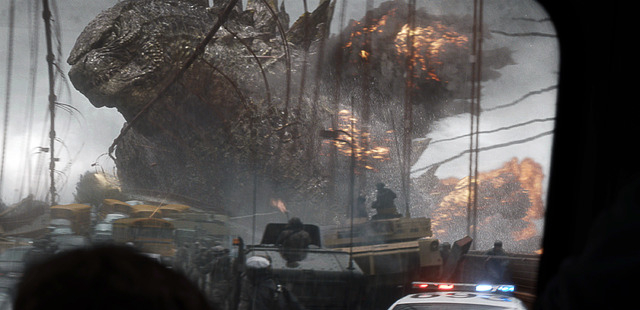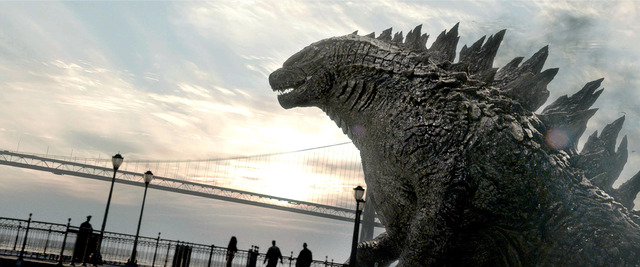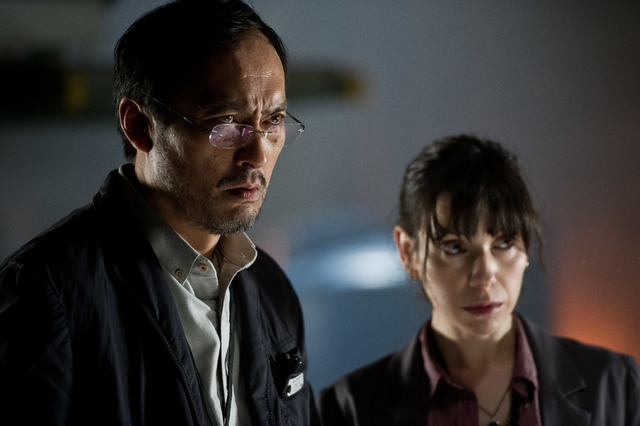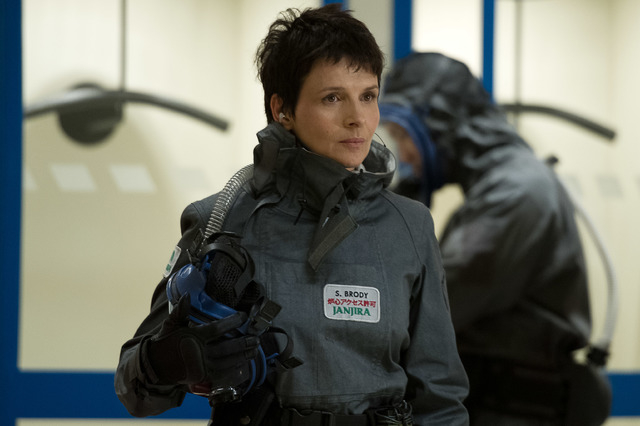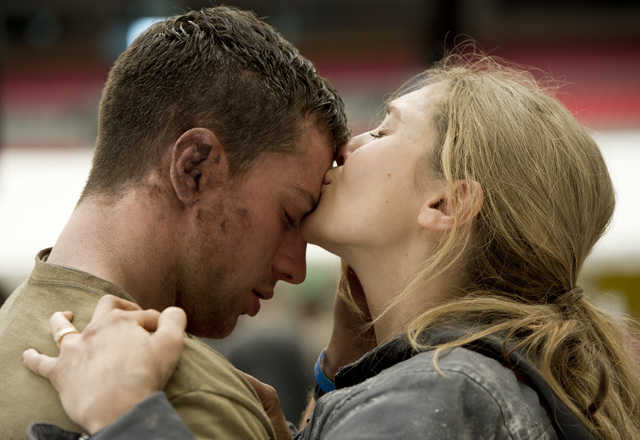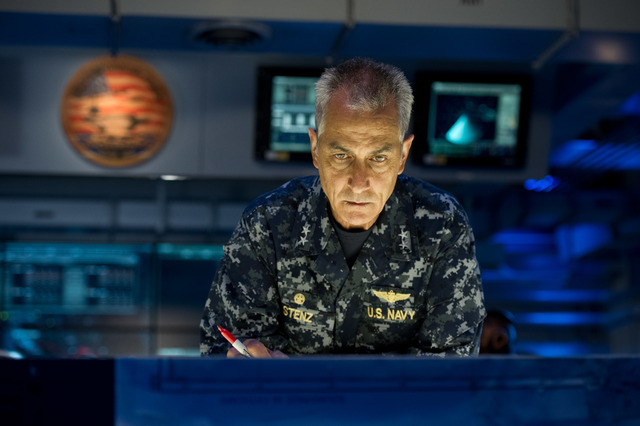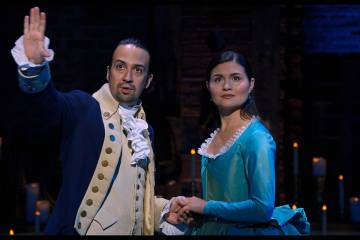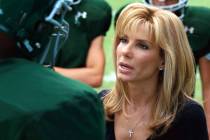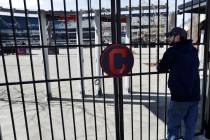Latest ‘Godzilla’ remake drops the ball on so many levels
Opponents of the Yucca Mountain nuclear waste repository may have their most convincing argument yet: “Godzilla.”
In this latest reimagining of the classic monster movies, a colossal praying mantis-looking thing is being held, along with all the nation’s other radioactive material, deep inside Yucca Mountain. That is, until it hears the mating call of an even-more-colossal praying mantis-looking thing, bursts out the back of the mountain and crashes through the ceiling of Caesars Palace before laying waste to the Strip.
But moviegoers never actually get to see it turn the city’s hotels into its own, personal chew toys. The very next image after its foot hits that first casino floor is an assessment of the damage, up and down the tourist corridor, set to Elvis’ “You’re the Devil in Disguise.”
Small, grainy footage of the beast sending the Eiffel Tower crashing down upon Las Vegas Boulevard eventually turns up on monitors in the background. But given the chance to showcase some serious spectacle along one of the world’s most iconic streets, the whole thing feels like a massive wasted opportunity.
But, then, so does much of “Godzilla.”
Boasting Aaron Taylor-Johnson, Ken Watanabe, Bryan Cranston, Juliette Binoche, Sally Hawkins, Elizabeth Olsen and David Strathairn, “Godzilla’s” cast is easily among the summer’s best. But director Gareth Edwards (“Monsters”) and screenwriter Max Borenstein give them almost nothing to do.
Binoche is barely in it. Olsen just gets to play The Wife and react to things. And while I remember seeing Hawkins, an Oscar nominee this year for “Blue Jasmine,” for the life of me I couldn’t tell you who her character was or what she was doing there.
It’s as though they saved all the character stuff for Cranston.
First seen in 1999, Cranston’s Joe Brody is an engineer at the nuclear plant in Janjira, Japan. He’s been tracking a series of approaching tremors until one fateful morning, on his birthday no less, the plant is leveled, killing his wife (Binoche) and causing the city to be sealed off for a generation.
Fifteen years later, Joe’s a mess. Overcome by grief, he’s turned into a bit of a crackpot, living in a tiny apartment wallpapered with news clippings, maps and charts while sneaking into the quarantine zone that used to be his neighborhood. (And, yes, it feels great seeing the man who’ll forever be synonymous with Walter White once again put on a hazmat suit.)
Joe’s arrest for trespassing prompts his Navy lieutenant son, Ford (Taylor-Johnson), to fly to Japan to bail him out. From there, the two discover that a giant beast — the one that eventually will summon his mate from Yucca Mountain — is being studied at the abandoned Janjira nuclear site.
Things go horribly wrong, as they are wont to do in movies like this, and the monster, referred to as a MUTO (Massive Unidentified Terrestrial Organism) runs amok, emitting electromagnetic pulses that leave a trail of blackouts in its wake.
The voice of reason in all this is monster expert Dr. Ishiro Serizawa (Watanabe). “Nature has a balance, a power to restore order,” he says, and that power, he believes, is Godzilla.
That’s pretty much where the logic begins and ends in “Godzilla.”
The Navy seems to share Serizawa’s belief that the scaly beast can kill the MUTOs. A fleet even follows him to the looming battle in the Bay Area, where the MUTOs are converging. Yet the Navy still tries to destroy Godzilla at every other turn.
Fighter jets also try to take out the MUTOs, only to end up falling from the sky. Which raises the question of why they were in the air in the first place when everyone involved knows that the monsters fry everything electronic.
And who, exactly, thought it was a good idea to try to take out the monsters with a massive nuclear device right outside San Francisco?
“Godzilla” would have made a terrific striptease artist, as it ever-so-slowly reveals itself. Fight scenes are cut short. There’s a glimpse of carnage here, a short burst of action there. But for long stretches, the movie just sort of happens in front of you, only rarely drawing you in.
Taylor-Johnson’s Ford, trained in explosive ordnance disposal, tries to save the day in a series of uninspired set pieces. There’s a tidal wave that doesn’t do much to one-up the tsunami in the far-less-expensive “The Impossible.” “Godzilla” was even beaten to the giant-monster punch by last summer’s “Pacific Rim,” which at least balanced its mayhem with a sense of humor.
The movie finally sputters to life at the end when Godzilla takes on the MUTOs in a two-on-one handicap match, as the three monsters topple the San Francisco skyline like so many drunks playing Jenga.
But, too often, “Godzilla” blows smoke when it should be breathing fire.
Contact Christopher Lawrence at clawrence@reviewjournal.com or 702-380-4567.

The 5 best monsters from the movies
Review
"Godzilla"
123 minutes
PG-13; intense sequences of destruction, mayhem and creature violence
Grade: C
At multiple locations



